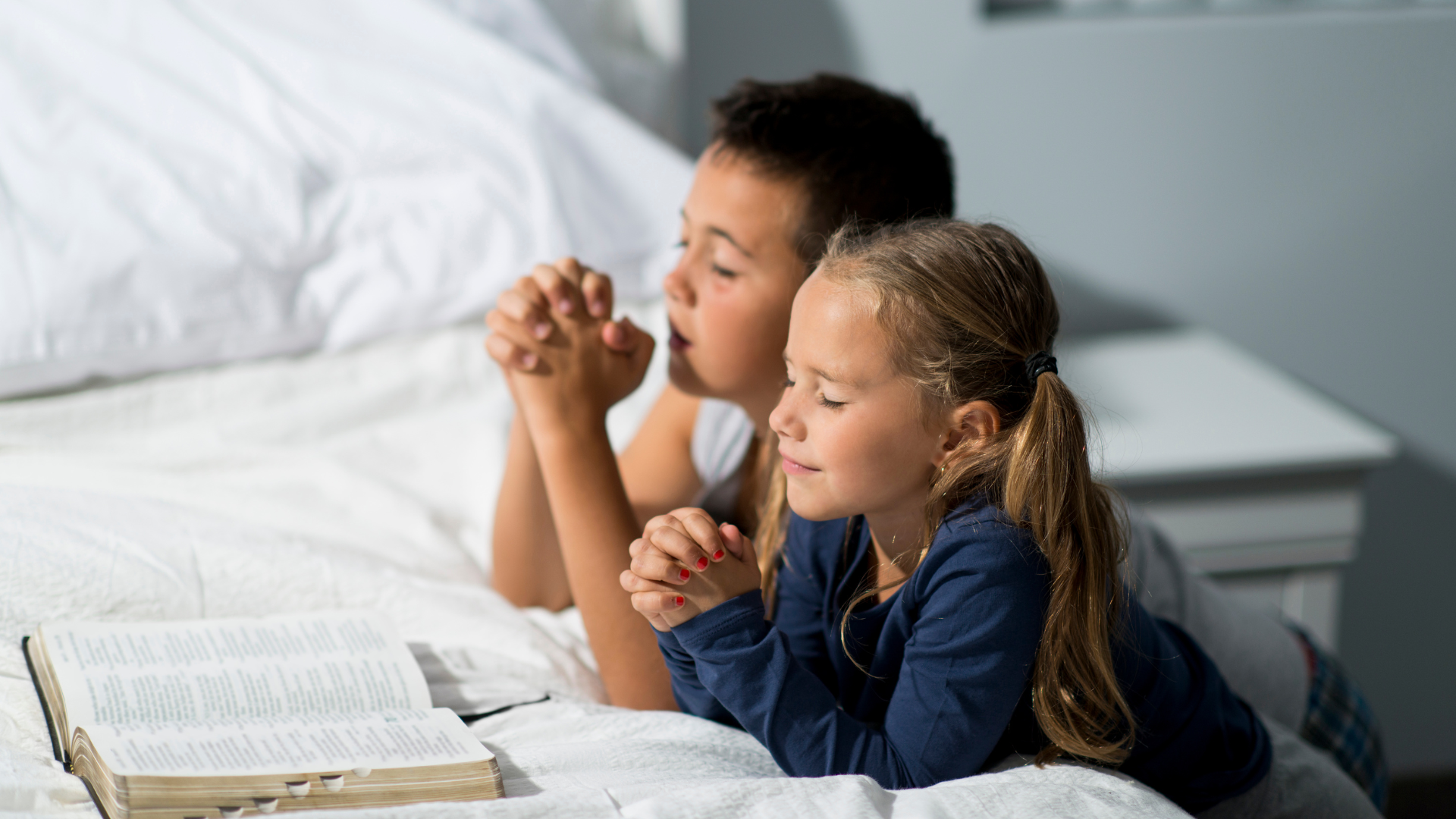Why Your Religious Upbringing Left You Feeling Starved For Love
I definitely entered my teen and young adult years feeling “starved for love,” but I didn’t come to understand this about myself until recently.
As someone who prided myself on being fiercely independent, even as a teenager, the idea that I “needed” anything (or anyone) caused me to bristle.
But what I’ve come to realize is that not wanting to need someone is also a sign of being “love starved” because when we needed love the most, it wasn’t available to us.
So we learned how to not need it.
Here’s the sad reality.
Many folks who were raised in high control religions, or religious cults, enter adulthood feeling starved for love because these groups often support an authoritarian parenting style.
While authoritarianism may produce obedient little children, it also produces adults who failed to get their needs for attunement and connection met during childhood.
Hence the reason we have so many adults who were raised in high control religions now feeling chronically starved for love.
What is an “Authoritarian Religious Upbringing?”
An authoritarian religious upbringing when someone was raised in a religious home that supported authoritarian parenting practices.
Most high control religions support an authoritarian parenting style.
If you’re wondering if the church you were raised in was a “High Control Religion,” see this article: What is a High Control Religion
Defining an Authoritarian Parenting Style
Authoritarian parenting is, in essence, about control.
This approach is characterized by a high demand for obedience without much in the way of warmth or nurturing.
Parents who adopt this style often rely on strict rules and expectations, and there’s little room for dialogue or negotiation.
It’s a “because I said so” mentality that prioritizes discipline over understanding.
The central belief here is that children should be seen and not heard, which can lead to a significant disconnect between parents and their children.
In contrast, there are two other primary parenting styles that differ significantly from the authoritarian approach: permissive and authoritative.
Permissive parenting is almost the antithesis of authoritarian, offering warmth and nurturing but lacking in the structure and discipline department.
Here, children might feel loved, but they may not develop the necessary skills for independence and self-regulation.
On the flip side, authoritative parenting manages to strike a balance between the two extremes.
This approach involves setting clear rules and expectations but also encourages open dialogue.
It’s about guiding rather than controlling, offering children a supportive environment where they feel valued and heard.
How High Control Religions & Authoritarian Parenting Are Entwined
High control religions, inherently authoritarian by nature, tend to foster and even promote authoritarian parenting practices within their communities.
This isn’t incidental but rather a fundamental aspect of maintaining the strict order and discipline these religions often demand.
Such religious settings champion unwavering obedience to authority figures, mirroring the dynamics found in authoritarian parenting.
This culture not only encourages but sometimes explicitly teaches parents to adopt a rigid, controlling approach with their children.
The underlying message is that deviation from this path could lead not only to personal moral failure but also to spiritual peril for both the child and the family.
Common Characteristics of an Authoritarian Religious Upbringing
Some common characteristics of living in an authoritarian home, especially one influenced by high control religions, may include:
Strict obedience demanded:
In these homes, children are often taught that obedience to parents—and by extension, religious leaders—is paramount.
Questioning or challenging authority is not welcomed, and doing so can result in severe consequences.
Limited freedom of expression:
Personal expression, be it through fashion, interests, or friendships outside the approved religious community, is heavily restricted.
This can stifle creativity and self-discovery, leaving individuals struggling to find their voice later in life.
High emphasis on punishment over dialogue:
Mistakes or disobedience are typically met with punishment rather than conversation.
This approach prioritizes compliance over understanding, hindering the development of critical thinking and emotional regulation skills.
Conditional love based on adherence to beliefs:
Love and acceptance within the family may feel contingent upon following the religious beliefs and practices strictly.
This can create a deep-seated fear of abandonment or being unworthy of love for simply being oneself.
Isolation from external influences:
To maintain control, there’s often a deliberate effort to isolate members from outside perspectives—be it through limiting access to diverse media, discouraging friendships outside the faith, or demonizing secular worldviews.
This isolation can lead to a narrowed view of the world and difficulty relating to others outside the religious community.

Authoritarian Parenting & Emotional Neglect
Authoritarian parenting commonly involves physical discipline, which can be inherently harmful.
However, an equally detrimental consequence of authoritarian parenting is emotional neglect, which is where the experience of being “love starved” originates.
Understanding Emotional Neglect
At its core, emotional neglect involves a consistent failure to attend to the emotional needs of a child.
According to Dr. Jonice Webb who coined the term childhood emotional neglect (CEN), it’s not about what happened to you , but rather, what didn’t happen for you .
She describes it as the “silent killer” of a child’s spirit because it erodes a child’s ability to self-validate, recognize their own worth, and understand or manage their emotions.
When parents are physically present but emotionally distant, they inadvertently send a message to their child that their feelings are irrelevant or burdensome, which can lead to a lifetime of seeking validation and love in unfulfilling ways.
Hence the experience of feeling “love starved” as you enter adulthood.
Aspects of Authoritarian Parenting that Result in Emotional Neglect
Based on what we’ve already covered about authoritarian parenting, I’m sure it comes as no surprise that emotional neglect is super-common among those raised in these types of environments.
And there are several reasons for this which we’ll cover in this section.
Lack of Emotional Awareness
One aspect of authoritarian parenting that leads to emotional neglect is the lack of emotional awareness.
Often, parents in such households focus more on obedience and discipline, overlooking the importance of discussing, validating or even recognizing emotions.
This can leave children feeling isolated with their feelings, uncertain of how to express or manage them in a healthy way.
High Expectations with Little Support
Authoritarian parents tend to set very high expectations for their children, usually in the realm of adherence to rules established by those in authority but sometimes extending to academics or sports as well.
However, this often comes without much in the way of emotional support or guidance, making children feel like they’re constantly falling short.
And children may even feel like their parent’s love and attention is contingent on them meeting these stringent standards.
Minimal Positive Reinforcement
In authoritarian households, praise is often scarce, and criticism is abundant.
Children may strive tirelessly for achievements, only to find their efforts go unnoticed or are never good enough.
This lack of positive reinforcement can deeply impact a child’s self-esteem and their ability to recognize their worth outside of their achievements or performance-based activities.
Emotional Expression Seen as Weakness
In many authoritarian families, emotional expression, especially that of vulnerability or sadness, is viewed as a weakness or not being reliant enough on god.
This perspective forces children to bottle up their emotions, fostering an environment where they learn to associate their natural emotional responses with shame or inadequacy.

Characteristics of an Adult Who Experienced Childhood Emotional Neglect
Folks who were raised in authoritarian religious environments will often experience 1 or more of the following characteristics to varying degrees:
- Chronic struggles with low self-esteem, poor self-confidence or “imposter syndrome”
- Rarely feeling like they’re deserving or worthy of love
- Feeling uncomfortable when care or concern is extended to them
- Difficulty recognizing their own feelings or expressing emotions, especially more nuanced ones beyond “sad, mad, glad”
- Fear of conflict or confrontation
- Perfectionism and a sense of constant striving to be “better”
- Difficulty either forming or maintaining intimate relationships or routinely entering into relationships with folks who are not emotionally stable or healthy
- Difficulty expressing vulnerability or being open to emotional intimacy
- Struggles with self-care and setting boundaries
- Chronic feelings of emptiness or a sense of something missing in their lives
- A tendency to rely on others for decision making or validation regarding choices
How an Emotionally Neglected Child Becomes a “Love Starved” Adult
It’s probably no surprise that childhood emotional neglect often leads to feeling “love starved” as an adult.
Even for folks who are in a loving connected relationship with an intimate partner may still feel like “something’s missing.”
It’s important to unpack this connection a bit further.
The Importance of Love in Psychological Development
Love, or more specifically, emotional attunement, plays a pivotal role in your psychological development.
From infancy, the quality of love and emotional engagement we receive lays the groundwork for our self-image, the way we form relationships, and how we experience the world in general.
When your caregivers effectively tune into your emotional needs during childhood, you receive the message that you are worthy; that your feelings matter, you are understood, and, more critically, that you’re not alone in your emotional experiences.
This nurturing environment fosters a strong foundation of security and trust, essential components for healthy psychological development.
And it teaches you how to recognize, manage, and express our emotions in constructive and connecting ways.
The Emotional Toll of an Authoritarian Religious Upbringing
Growing up in authoritarian religious home means you probably had to navigate a world where emotional expression and needs were not only neglected but sometimes outright dismissed or punished.
The unfortunate byproduct of this is that this form of upbringing often creates an deep, internal void where self-worth, emotional understanding, and the ability to form genuine connections should reside.
Adults who experienced this type of neglect might find themselves struggling with self-doubt, feeling unworthy of love, or incapable of expressing their needs and emotions in healthy ways.
It’s a tough journey, moving from a space where vulnerability was seen as weakness, to understanding that it’s actually a strength, and a bridge to deeper connections with others.
If you’re feeling the effects of such an upbringing, know that your emotions, your needs, and your voice, they all matter.
They’re the keys to not just surviving, but thriving, in a world that is ready to hear what you have to say.
What To Do Next:
We covered quite a bit of information in this article. If you’re wondering what to do next, consider the following…
Join the Group:
One thing I would definitely encourage you to do is to check out my private Facebook group for folks recovering from religious harm and spiritual abuse:
Learn More About Me:
Stay Connected
Most importantly you’ll want to make sure you’re on my email list.
Each week I send out a topical email related to religious indoctrination and religious harm recovery.
Use the form below to sign up!
Content Disclaimer:
This blog post shares insights from my clinical experience & professional education in exploring key topics related to religious harm recovery. However, it is not intended as academic writing or formal research. For more information, please see the full disclaimer.




